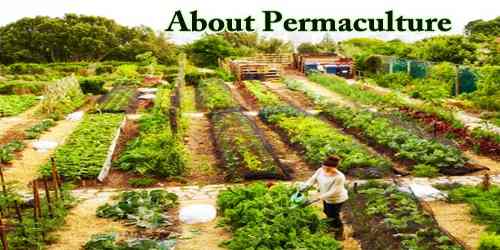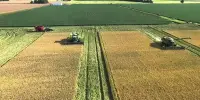Natural farming, often known as “the Fukuoka Method,” “the natural way of farming,” or “do-nothing farming,” is an ecological farming strategy developed by Masanobu Fukuoka (1913–2008). It is an agricultural philosophy and approach that emphasizes cooperating with natural processes rather than opposing them. It aims to reduce external inputs and human involvement while emphasizing sustainable and regenerative processes. Masanobu Fukuoka, a Japanese farmer and philosopher, popularized the notion of natural farming with his book “The One-Straw Revolution.”
The title relates not to a lack of effort, but to avoiding produced inputs and equipment. Natural farming is similar to fertility farming, organic farming, sustainable agriculture, agroecology, agroforestry, ecoagriculture, and permaculture, but it differs from biodynamic agriculture.
The approach complements each farmed area’s inherent biodiversity, encouraging the complexity of living organisms—both plant and animal—that shape each ecosystem to thrive alongside food plants. Fukuoka considered farming as both a way of providing food and an artistic or spiritual approach to life, with the ultimate goal of “the cultivation and perfection of human beings”. He proposed that farmers would profit from regularly monitoring local conditions. Natural farming is a closed system that requires no human inputs and resembles nature.
Key principles of natural farming include:
- No-tillage (No plowing): Natural farming argues for avoiding standard plowing and tilling processes, which alter the soil’s natural structure and can lead to soil erosion. Instead, the earth is left untouched or just minimally disturbed to retain its integrity.
- Cover cropping: Cover crops are produced to protect soil from erosion, control weeds, and increase soil fertility. They also add organic matter to the soil as they decay.
- Mulching: Mulching is the process of covering the soil with organic materials like straw, leaves, or other plant leftovers. Mulch helps to maintain soil moisture, control weeds, and regulate soil temperature.
- Crop diversity: It encourages growing a variety of crops together, mimicking the diversity found in natural ecosystems. This can enhance ecosystem resilience, reduce the risk of pests and diseases, and improve overall soil health.
- No chemical fertilizers or pesticides: It avoids using synthetic fertilizers and pesticides. Instead, it relies on natural pest management mechanisms including nitrogen-fixing by leguminous plants and the development of beneficial insects.
Natural farming is frequently associated with holistic and sustainable agriculture, which promotes a healthy and harmonious relationship between humans and nature. While it has acquired popularity in some circles, it may not be appropriate for all agricultural settings, and its success is dependent on climate, soil type, and local ecosystems.
















